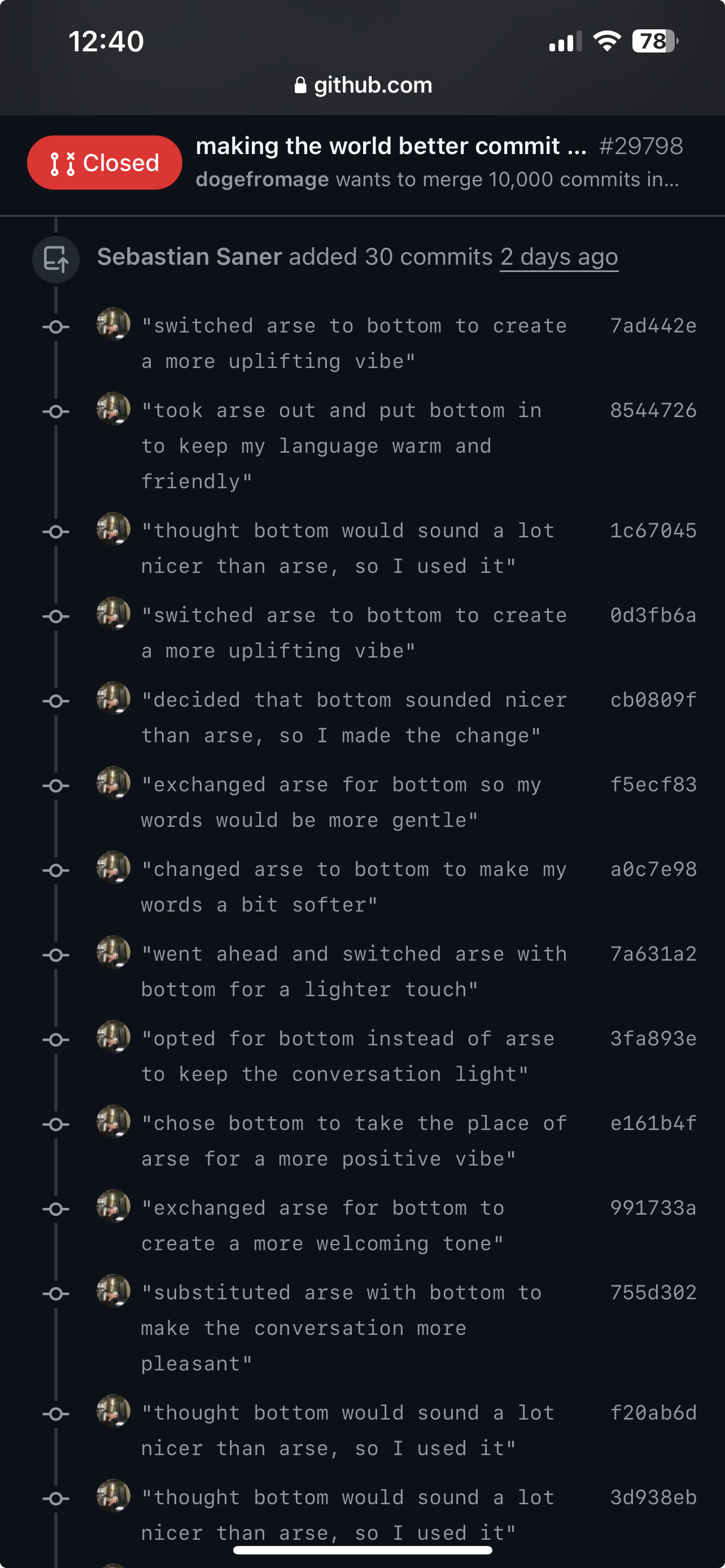

That’s called a workaround. No end user should have to rely on a workaround as a solution to a bug; and make no mistake, it’s a bug.
Just a guy wandering aimlessly through this world.
Pronouns: he/him/his


That’s called a workaround. No end user should have to rely on a workaround as a solution to a bug; and make no mistake, it’s a bug.


I’m probably going to get downvoted to Hell and back, but someone’s gotta say it: that’s a git problem, not Windows.
First of all, I agree that case-insensitive file systems suck. It makes things inconsistent, especially from a development standpoint.
But, everyone has known that Windows (and macOS) use case insensitive file systems. At least for Windows, it always has been that way.
Git was written in Linux, which uses a case sensitive file system. So it’s no surprise that its internals use case insensitive storage. Someone ported it over to Windows, and I’m sure they knew about the file system differences. They could’ve taken that into account for file systems that are case insensitive, but chose not to do anything to safe guard Windows users.
But until the day that somebody fixes Git, everybody who is not using case sensitive file systems needs to care more about how they name things (and make sure their team does too). Because fuck everyone else, right?


$goddamnitJeffStopChangingMyFuckingVariableNames = 1;



Those commit messages though 🤣
This only could’ve been better if this was a picture frame a phone of the monitor with the screenshot open in whatever the default screenshot app is for the is.
Back in 2016 (wow, almost a decade now…) I got a job with a group who used Word docs to email instructions on how to update your code with their changes. For example, “In file xyz.php, go to line 123 and replace <code> with <code>.”
One of my first tasks was getting that group set up with git. But I will never forget that was their best way to version control code… in 2016.


VPN, in addition to masking your real IP, will also encrypt all of your Internet traffic, even from your ISP.
What does that mean? Encryption is a means of making your data unreadable to everybody except those with permission to view it (you and the other person you’re talking to; servers in this case). Your ISP (otherwise known as your Internet Service Provider) is not your friend. They will turn your Internet traffic data over if asked.
This will include, at a minimum, any DNS lookups (more on that in a moment) and any unencrypted (http://) websites you have visited. A VPN can prevent this by obfuscating your Internet traffic. It is a special ISP (of sorts) that should not be logging anything you do on the Internet.
Back to DNS (Domain Name Service). Just like with phones, the Internet uses numbers to connect to other servers. And like a contacts list, DNS is a way to map those numbers to names. For example, one of the IPs used by www.google.com is 142.250.72.132. It would be near impossible to remember all the IPs used by every website, so we use DNS servers to translate them for us. It’s more complex than that of course, but good to understand the basics.
Back to the topic of VPNs. As long as you use a reputable VPN that doesn’t log your internet traffic, you should be safe from pesky lawyers knocking at your door. The beautiful thing about a VPN is that typically you set it up and forget it’s there.
Lastly, my best advice I can give you is to trust your instincts. If something feels too sketchy, then don’t do it. Some things are not worth the consequences. Happy sailing!
Yes. Thankfully in my experience I’ve only dealt with this once or twice. But it’s a pita every time.
I’ve tried switching macOS to a case sensitive file system, but not all programs can handle it (at the time it was Photoshop).